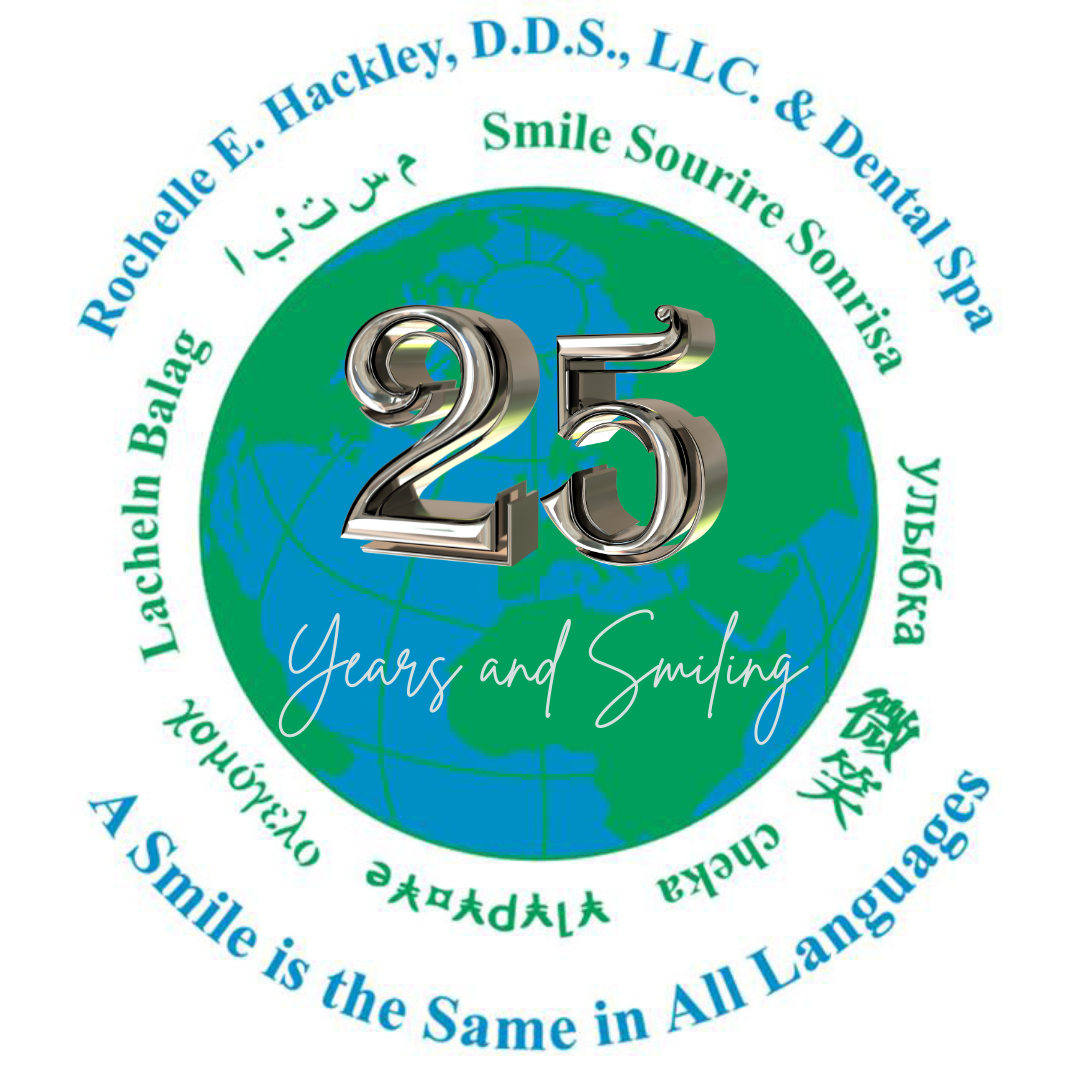You’ve probably heard the saying, “You are what you eat.” This is especially true for your teeth and gums. The starchy or sugary foods we enjoy are also favorites of the bacteria in your mouth, which can lead to tooth decay and gum disease.
The difference between a healthy smile and frequent trips to the dentist largely depends on your diet. Even with a solid oral hygiene routine—brushing twice a day and flossing once daily—keeping your teeth healthy long-term can be challenging.
Which Foods are Best for Teeth and Gum Health?
Some of the top foods for a healthy mouth are fresh fruits and vegetables, thanks to their high nutritional value and natural teeth-cleaning benefits. Calcium-rich foods, such as low-fat or fat-free milk, yogurt, cheese, fortified soy drinks, tofu, canned salmon, almonds, and dark green leafy vegetables, promote strong teeth and bones. Chewing crunchy foods stimulates saliva production, which, along with water, helps wash away plaque-causing bacteria and food particles.
Cheese, Milk, and Yogurt
Cheese is one of the top foods for a healthy mouth for several reasons. It is low in sugar and high in calcium, and contains casein, a protein that helps fortify tooth enamel. The high calcium content supports bone density, while the phosphate in cheese helps balance pH levels in the mouth, preserving tooth enamel. Additionally, chewing cheese increases saliva production, which helps wash away bacteria.
Besides fluoridated water, milk is the best drink for your teeth. It is rich in calcium and other essential nutrients and lowers acid levels in the mouth, helping to fight tooth decay.
Yogurt is also beneficial, as it is packed with calcium and probiotics that protect against cavities, gum disease, and even bad breath.
Water
Water stands out as the healthiest drink available. Our bodies are composed of 60% water, and staying hydrated helps distribute nutrients, eliminate waste, maintain healthy skin, and keep muscles functioning. Drinking water also significantly benefits your teeth, especially if it’s fluoridated. Fluoridated water, known as “nature’s cavity fighter,” helps prevent cavities. Additionally, water washes away food particles and maintains high saliva levels, promoting oral health.
Leafy Greens (Spinach, Lettuce, Kale)
Super healthy leafy greens are rich in calcium, folic acid, and essential vitamins and minerals that benefit your teeth and gums. Crunchy fresh greens in salads and sandwiches also help clean your teeth.
Apples and Pears
Will an apple a day keep the dentist away? Maybe not entirely, but it certainly helps. Eating apples and other hard, fibrous fruits can clean your teeth and increase saliva production, which neutralizes the citric and malic acids left in your mouth. While sugary apple juice can contribute to tooth decay, fresh apples are less likely to cause problems. Chewing the fibrous texture of apples stimulates your gums, reduces cavity-causing bacteria, and increases saliva flow.
Unlike many acidic fruits, raw pears effectively neutralize acids in your mouth that cause decay.
Nuts
Nuts offer numerous health benefits for your teeth, being rich in essential elements like calcium and phosphorus. Almonds, Brazil nuts, and cashews are particularly beneficial as they help fight bacteria that cause tooth decay. Peanuts are a great source of calcium and vitamin D, while almonds provide significant amounts of calcium, supporting teeth and gums. Cashews stimulate saliva production, and walnuts are packed with fiber, folic acid, iron, thiamine, magnesium, niacin, vitamin E, vitamin B6, potassium, and zinc.
Top Foods for a Healthy Mouth
A diet that promotes good oral health involves not just what you eat, but also when and how you eat. One effective way to protect your teeth is by eating raw foods at the end of meals. These foods help clean teeth, massage gums, and stimulate saliva production, which washes away any remaining food particles. Dr. Hackley and our knowledgeable and compassionate staff are dedicated to helping you create and maintain a smile you love. Contact us today to schedule an appointment!
Searching for a pregnancy dentist near me in Rockville? We can help. Dental health during pregnancy can be stressful. The hormonal changes associated with pregnancy can lead to issues with oral health. A good prenatal dentist understands the importance of oral health during pregnancy. Hackley DDS proudly offers prenatal dentistry care in Rockville and the surrounding area. Our compassionate and skilled team are here to help you.
Common Dental Conditions During Pregnancy
Pregnant women have to pay closer attention to all aspects of their health, including dental health. For some women, pregnancy increases the production of plaque. This sudden increase may lead to gum disease, gingivitis, and tooth decay.
Often these issues are related to hormone changes. However, it may be caused by increased cravings for sugary goods, gums problems, and vomiting.
Gingivitis During Pregnancy
Pregnant women often experience cavities, periodontal disease, gingivitis, tooth erosion and more. Gingivitis is particularly common during pregnancy. It affects between 60-75% of pregnant women. Symptoms of gingivitis include bleeding gums, redness, tenderness and swelling. It’s crucial to treat gingivitis as soon as possible. If it is left untreated, it can progress into a more severe form of gum disease known as periodontitis.
Why Dental Care is Important
Expectant mothers should pay close attention to their dental health since pregnancy increases the risk of complications with teeth and gums. These complications can lead to periodontitis, which increases the risk of premature birth and low birth weight. Periodontist is also associated with various systemic health problems. These could further endanger the mother and unborn baby.
Additionally, mothers with preexisting conditions are more susceptible to dental issues.
Dental Health During Pregnancy
Pregnant mothers are often prone to neglect their dental health due to high levels of fatigue and frequent snacking. Additionally, morning sickness can wear away tooth enamel while hormone changes can lead to gingivitis. While it may seem like a small thing, oral health has a direct impact on the unborn baby’s health.
Excess bacteria in the mouth can enter the bloodstream and make its way to uterus. This can cause premature labor. Therefore, tis crucial that pregnant women brush twice a day, floss nightly, and keep up with regular dental appointment.
Pregnancy Dentist Near Me Rockville
Pregnancy is a beautiful, but stressful time in a woman’s life. We understand that you have a lot going on, but it’s important that you make time for your oral health as well. Contact Hackley DDS today to schedule an appointment with a pregnancy dentist near me in Rockville.
What are cavities and how can we prevent them? Essentially, cavities are holes in the enamel of your tooth. They can cause pain and discomfort, and if left untreated, lead to more decay. Here are some simple things you can do to prevent cavities.
What is a cavity?
A cavity is a hole in your tooth. In the early stages, it may look like a white spot but over time it will begin to look brow or black. They can be big or small. While they can be in many places, they often form on the tops of your teeth, where you bite and in between teeth, where food gets stuck.
Cavities cause pain, sensitivity, infections, and can even cause you to lose your teeth. The best way to keep your teeth healthy is to prevent cavities.
What causes cavities?

During the day, the bacteria in our mouth feed off of the foods we eat. Anytime we eat or drink sugar, the bacteria eat the sugar and turn it into acid. This acid stays on our teeth and essentially attacks the outer surface.
Over time, this acid wears down our teeth, creating a cavity. If the cavity isn’t fixed, the bacteria get inside it and travel from the outside of the tooth into the dentin and then the pulp, creating an infection.
Dental infections can be very serious. If you notice redness, pain and swelling in your face or mouth you should seek care.
Higher Risks for Cavities
Anyone can get cavities, but you may be at a higher risk if you:
- Snack between meals
- Have cracked or chipped teeth
- Eat sugar foods or drinks
- Take medications that cause dry mouth
- Have a personal and/or family history of cavities
- Have had head or neck radiation therapy
How to Prevent Cavities
The best ways to prevent cavities are to maintain good oral health and hygiene habits. This includes:
- Drink plenty of water
- Brush with fluoride toothpaste 2 times a day
- Floss
- Limit sweet snacks between meals
- Limit sugary foods and drinks like candies and soda.
- Don’t sip or snack on sugary things all day. If you are going to eat/drink them, do so at mealtimes and brush after.
- Visit your dentist regularly for cleanings and exams.
- Sealants can be placed on the back teeth to help protect them from bacteria causing cavities in hard-to-reach grooves.
For more help with your oral health, please visit Hackley DDS. Let us take care of your teeth and keep your smile healthy and beautiful!
Does your child have a fear of the dentist? Or do you avoid the dentist’s office like the plague? If so, sedation dentistry Rockville, Maryland might be the perfect solution. ease some of your anxiety. Used for everything from invasive procedures to routine cleanings, sedation dentistry is a great way to ease dental anxiety. Keep ready to learn whether it’s right for you.
What Is Sedation Dentistry? 
As the name suggests, sedation dentistry uses medication to relax dental patients during their procedures. When it comes to dentistry, there are four levels of sedation that are used:
- Minimal sedation. The patient is awake, yet relaxed.
- Moderate sedation. The patient might slur their words, and they probably won’t remember much about the procedure.
- Deep sedation. The patient is on the edge of consciousness, but they can be woken up if needed.
- General anesthesia. The patient is completely unconscious.
Types of Sedation Used in Dentistry
Interested in getting sedation dentistry Rockville, Maryland? Your practitioner will likely use one of the following:
- Inhaled minimal sedation. Essentially, this requires inhaling a combination of nitrous oxide (aka “laughing gas”) and oxygen.
- Oral sedation. Depending on the dosage, this kind of sedation ranges from minimal to moderate. Most patients are given a pill called Halcion (which belongs to the same family as Valium), which is one of the most common forms of sedation dentistry.
- IV moderate sedation. The patient receives the sedative drug through a vein.
- Deep sedation/general anesthesia. Just like in surgical offices, general anesthesia administers medications that make the patient almost or totally unconscious.
Best Sedation Dentistry Rockville, Maryland
To summarize, sedation dentistry is ideal for patients who fear the dentist. Additionally, it’s great for people who have low pain thresholds, sensitive teeth, bad gag reflexes, or are unable to sit still for long periods of time.
If you’re looking for the best sedation dentistry in Rockville, Maryland, you’ve found it at Hackley DDS. Schedule a consult today.
Answers to some of the most frequently asked questions about Invisalign.
Read More
Protect your teeth, gums, and mouth from damage and disease with these 5 oral health tips for the holidays.
Read More







